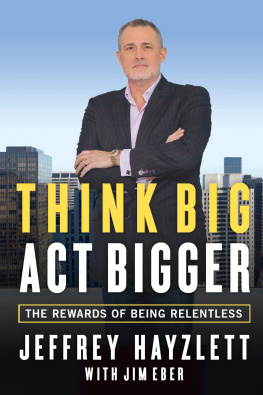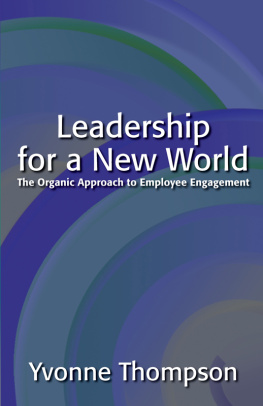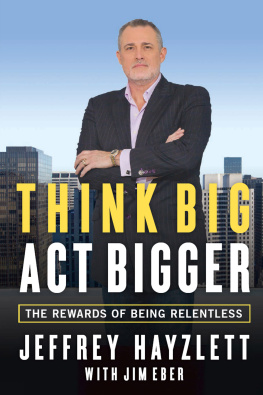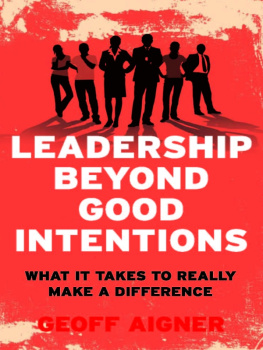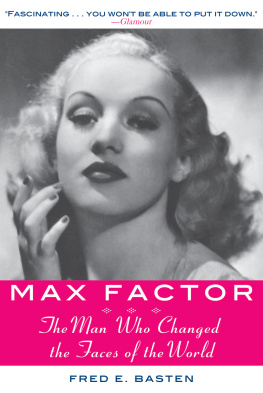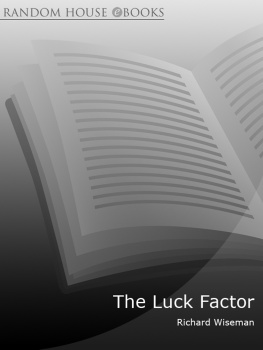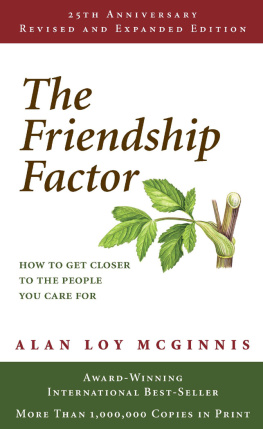Jeffrey Hayzlett - The Hero Factor
Here you can read online Jeffrey Hayzlett - The Hero Factor full text of the book (entire story) in english for free. Download pdf and epub, get meaning, cover and reviews about this ebook. year: 2018, publisher: Entrepreneur Press, genre: Business. Description of the work, (preface) as well as reviews are available. Best literature library LitArk.com created for fans of good reading and offers a wide selection of genres:
Romance novel
Science fiction
Adventure
Detective
Science
History
Home and family
Prose
Art
Politics
Computer
Non-fiction
Religion
Business
Children
Humor
Choose a favorite category and find really read worthwhile books. Enjoy immersion in the world of imagination, feel the emotions of the characters or learn something new for yourself, make an fascinating discovery.
- Book:The Hero Factor
- Author:
- Publisher:Entrepreneur Press
- Genre:
- Year:2018
- Rating:4 / 5
- Favourites:Add to favourites
- Your mark:
- 80
- 1
- 2
- 3
- 4
- 5
The Hero Factor: summary, description and annotation
We offer to read an annotation, description, summary or preface (depends on what the author of the book "The Hero Factor" wrote himself). If you haven't found the necessary information about the book — write in the comments, we will try to find it.
The Hero Factor — read online for free the complete book (whole text) full work
Below is the text of the book, divided by pages. System saving the place of the last page read, allows you to conveniently read the book "The Hero Factor" online for free, without having to search again every time where you left off. Put a bookmark, and you can go to the page where you finished reading at any time.
Font size:
Interval:
Bookmark:

QUOTES FROM HERO LEADERS
To love what you do and feel that it matters. How could anything be more fun?
KATHARINE GRAHAM
Do not wait; the time will never be just right. Start where you stand, and work with whatever tools you may have at your command, and better tools will be found as you go along.
NAPOLEON HILL
The most difficult thing is the decision to act, the rest is merely tenacity.
AMELIA EARHART
Happiness will never come if its a goal in itself; happiness is a by-product of a commitment to worthy causes.
NORMAN VINCENT PEALE
Flaming enthusiasm, backed up by horse sense and persistence, is the quality that most frequently makes for success.
DALE CARNEGIE
THE
HERO
FACTOR
HOW GREAT LEADERS
TRANSFORM ORGANIZATIONS
AND CREATE
WINNING CULTURES
JEFFREY W. HAYZLETT
WITH JIM EBER
Entrepreneur Press
Entrepreneur Press, Publisher
Cover Design: Andrew Welyczko
Production and Composition: Eliot House Productions
2018 by Entrepreneur Media, Inc.
All rights reserved.
Reproduction or translation of any part of this work beyond that permitted by Section 107 or 108 of the 1976 United States Copyright Act without permission of the copyright owner is unlawful. Requests for permission or further information should be addressed Entrepreneur Media Inc. Attn: Legal Department, 18061 Fitch, Irvine, CA 92614.
This publication is designed to provide accurate and authoritative information in regard to the subject matter covered. It is sold with the understanding that the publisher is not engaged in rendering legal, accounting or other professional services. If legal advice or other expert assistance is required, the services of a competent professional person should be sought.
Entrepreneur Press is a registered trademark of Entrepreneur Media, Inc.
ebook ISBN: 978-1-61308-395-6
To the hero business leaders who have led the way to build their communities, enrich the lives of others, and make this world a better place. And to the future heroes who are inspired to follow in those leaders footsteps to build new hero cultures, teams, and businesses and leave this world better than the way they found it.
CONTENTS
ORIGIN STORY
B y many key indicators, the American economy was on fire in 1998. Unemployment was the lowest it had been in 30 years. Wages were on the rise for many workers. America was growing, and I was one of the beneficiaries of that growth. I had already made my first million and my businesses were doing well. I had a happy life and a great family, but I still had regular throwdowns with my father-in-law, Bob, on our favorite subjects: politics and business.
Bob has been a hardworking farmer all his life. He will ride a tractor until we pry his cold, dead hands off itand he shows no signs of letting go. All our conversations have been fun, but few have stuck in my mind like the one we had in fall 1998. I didnt think there was much to debate, but there we were, talking about the state of American business, when Bob looked directly at me and made a comment about the fat catsthe people taking in millions of dollarsand how they dont pay their fair share.
Anyone who knows me knows it takes the metaphorical equivalent of a truck hitting me to render me speechless, even for a moment. But there I was, unable to speak as I processed what Bob had said. Who do you think those fat cats are? I finally asked him. By your definition, Im one of those fat cats. Do you think I dont pay my fair share?
Bob shook his head no, but I wasnt convinced. So I hit him with all I had: Right. Im your son-in-law, and I pay my fair share. Most of the people you call fat cats who I know do, too. What youre saying is based on the perception of a few. Most of the richest Americans do great things. Taking them down doesnt build us up; it destroys the people who work for them.
Bob seemed like he wanted to respond, but I was on a roll. To say the richest people are evil simply because they make money also ignores that capitalism creates altruism. You can only win in capitalism by providing a service or selling something people need or want. Most of these people you call fat cats simply found a way to do that by building, creating, or innovating and making this country great. Nothing works in America without paying for it in some way, and someone is going to profit from that. To say rich people dont pay their share ignores their contributions to the process of human advancement.
Ill be honest: I dont remember what Bob said next. But after I got down from my soapbox, I understood why he said what he said: Perception is reality. I could see just how corrupt the idea of anyone making millions like those fat cats was from his point of view: For them to win, everyone else had to lose, especially people like Bob, who work hard and get their hands dirty. Some of the things he saw in 1998 still resonate with people today: inflated CEO salaries backed by golden parachutes no matter how badly they fail; well-paying jobs being sent overseas to improve margins and enrich shareholders; hardworking families and farmers like Bob getting squeezed for every dollar and foreclosed on by heartless banks; the worship of Wall Street over Main Street. The list goes on. But most of the fat cats I knew personally were making money legally and respectably. They might not literally get their hands dirty working the land to earn a living like my father-in-law, but what they did was not dirty. I was convinced Bob was only seeing the bad side of business.
Now, if youre expecting a come-to-Jesus moment, where Bob opens my eyes to the truth and I hear my call to hero leadership, youre as wrong as he was. He may have been a farmer not far from Iowa, but this was not my Field of Dreams moment.
At the time, I didnt question whether there was more than just perception to Bobs reality, but there was. I didnt see that while the economy was growing, wages stayed stagnant for many Americans. I didnt make the connection that while productivity was increasing, people were working hundreds of hours more for less pay. That income inequality was still on the rise. That the richest 10 percent were reaping almost all the benefits of growth. America was growing, but not everyone was winning. In fact, fewer and fewer were. Then the dotcom bubble burst at the dawn of the 21st century, and America learned that some of those gains were nothing but air.
But I didnt see any of that at the time. I was doing well, and I knew I was doing right by my family, the people who worked for me, and myself. How could I be wrong if I was sure what I was doing was right?
Ill be honest again: Even when I got that first call to hero leadership, more than a decade later as America struggled to recover from the Great Recession, I didnt answer it. Because, again, I didnt feel I was doing anything wrong, and truthfully, I wasnt. I was doing well, and I didnt feel I needed to do more. And doing well is good. Its fine.
But its not being a hero.
PART I
THE CALL TO HERO LEADERSHIP AND THE HERO FACTOR
A s you read this book, youll find that hero leadership is a choicea choice to be more than good, more than great, no matter the circumstances. Hero leadership does not choose you. It is a conscious choice leaders and companies make: to decide what they value and to hold themselves accountable to live those values consistently and sustainably in everything they do. This is where our Hero Factor journey begins. In this first part, Ill walk you through what that call to leadership might look like for you (every origin story is different, after all). Then well create a working definition of your Hero Factor and learn how you can measure it.
Next pageFont size:
Interval:
Bookmark:
Similar books «The Hero Factor»
Look at similar books to The Hero Factor. We have selected literature similar in name and meaning in the hope of providing readers with more options to find new, interesting, not yet read works.
Discussion, reviews of the book The Hero Factor and just readers' own opinions. Leave your comments, write what you think about the work, its meaning or the main characters. Specify what exactly you liked and what you didn't like, and why you think so.

